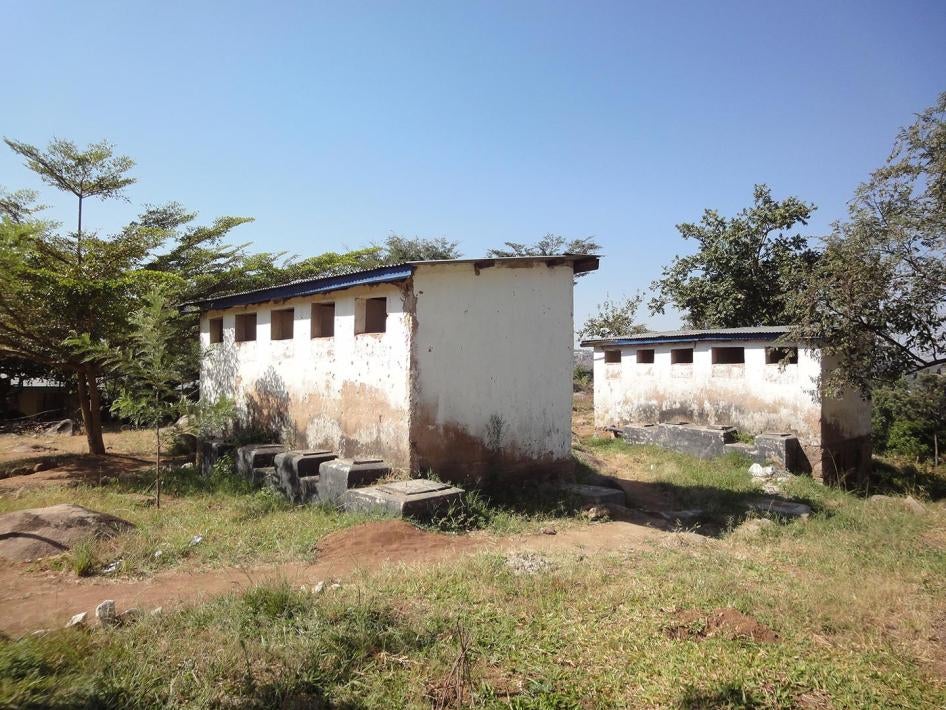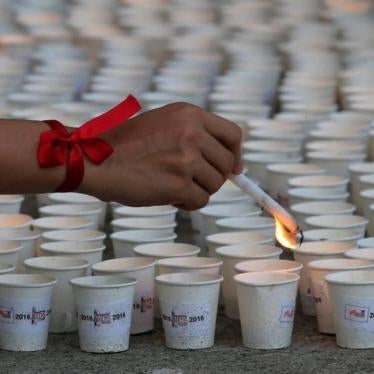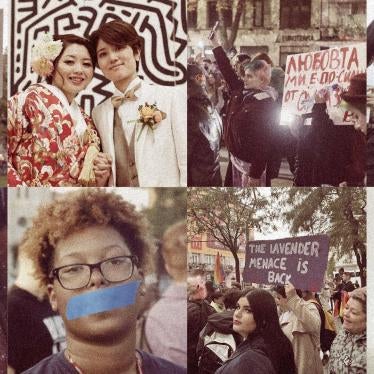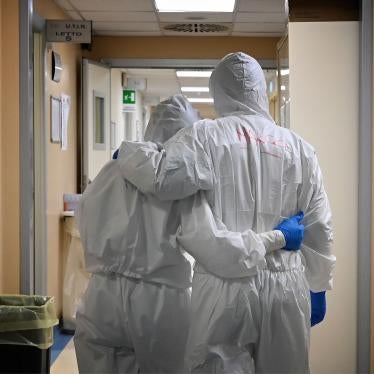“Sometimes [having your period] is a challenge. [It] stops girls from going to school.”
Rebeca, who was 17 when she spoke to Human Rights Watch in 2016, should know. She and other school girls in Tanzania told us they lacked menstrual supplies, toilets with privacy, and information needed to handle menstruation. They described taunts and humiliation when, because of inadequate materials, they leaked blood, missing school as a result.
Girls around the world face the same challenge – often with the same, dispiriting result.
The right to sanitation entitles everyone to sanitation services – including to manage menstruation – that provide privacy, ensure dignity, and are safe and hygienic.
This is often not the case. Human Rights Watch research from 2005 to 2017 documents obstacles people encounter when trying to perform the simple acts of relieving themselves or managing menstruation safely and with dignity.
In almost every setting we examined, including schools, prisons and jails, and refugee camps, we found that discrimination based on caste, gender, disability, age, or other status makes it even harder for some people to access adequate sanitation services than others.
We found women and girls often lack safe and private sanitation facilities and materials to manage their menstruation. This can undermine their health, education, work, and gender equality.
A lack of access to safe and accessible sanitation facilities can also impact the rights of people with disabilities, older adults, and transgender and gender non-conforming individuals.
To ensure adequate sanitation for all people, governments need to do more than simply commit new funding and resources. They also need to address discrimination and distinctive challenges for certain populations that prevent some people from accessing sanitation.
Finance and water and sanitation ministers from around the world gathering in Washington, DC, this week for a high-level meeting on global sanitation and drinking water challenges have an opportunity to do just this.
Otherwise, sanitation will continue to be viewed as something for some people.
But it’s not. Sanitation is a human right for all people. Governments need to be treating it that way.










